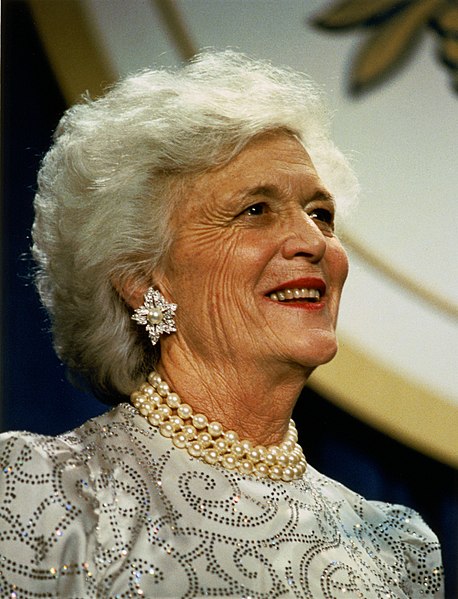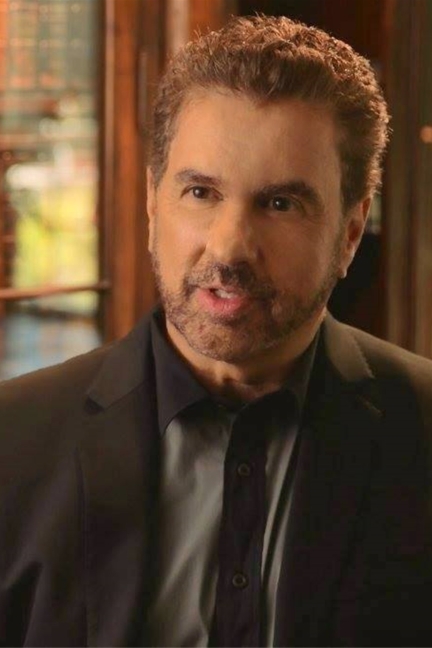by J. Randy Taraborrelli
From biographer J. Randy Taraborrelli comes Grace & Steel, the epic, hidden history of the exceptional women behind one of the greatest political dynasties of all time—the Bush family. Read an excerpt below.

This image is in the public domain via Wikicommons.
In 1961, Barbara and George decided to send young George W. to Phillips Academy in Andover, once attended by his father and grandfather. George would enjoy his time at Andover, though he wasn’t intellectually curious; he’d do just barely enough to get by in school. He preferred sports to academics. He was competitive and an outstanding athlete, especially in soccer, baseball, and basketball. Well-liked, he was known for his sense of daring and good humor.
Barbara was frustrated with him. As the oldest, she felt he had a responsibility to set an example for his siblings, and he didn’t seem up to the challenge. She was tired of arguing with him about it. There seemed no way to convince him to apply himself. “I give up,” she said. “He’s not his grandfather and he’s not his father, and I just have to accept it.” George tried to convince her that their son still had a lot of growing up to do, and that there was no telling what he might later achieve. “Well, I’m not going to hold my breath,” Barbara said. She had a lot on her mind at this time, which may explain some of her impatience. As well as any concerns about her son, she was worried about the future.
When George H.W. won the Harris County chairmanship in 1962, Barbara realized that this was just the beginning for her husband in politics and that she’d either have to change her attitude or be left behind, especially after George made it clear he wanted to run for Senate, just like his father.
Two years later, in 1964, George won the Senate nomination. However, he lost the general election to Democratic senator Ralph Yarborough. George had supported the war in Vietnam and opposed civil rights legislation. Though stung by this loss, two years later he decided to run for Congress.
This time George waged a successful campaign. After selling off his share in Zapata to avoid any conflict of interest, he ran against Democrat Frank Briscoe and was elected to a seat representing the Seventh District of Texas, winning 57 percent of the votes cast. He would be the first Republican congressman to represent his hometown Houston district.
With George now a congressman—and he would serve two terms—the Bush family had to relocate again, this time from Houston to Washington. While she packed up the house yet again, Barbara stayed behind while Neil, Marvin, and Doro went ahead with their father to Washington. George W. was now at Yale, and Jeb was finishing up high school and soon to start Phillips Academy. Soon the Bush family would move into their new home on Hillbrook Lane in Northwest Washington.
By this time, Barbara knew what was expected of her. She understood that little in her life ever would have much permanence. She also tried to resist the anger she felt at having so little control.
As usual, Dorothy didn’t agree. She did believe she and her daughter-in-law had an absolute duty to support their husbands’ political aspirations. However, to be silent? To not voice an opinion? To be complacent? No. That wasn’t who Dorothy had ever been in her marriage to Prescott, and not who she wanted Barbara to be in hers to George—even if he was her son.
Copyright © 2021 by J. Randy Taraborrelli.
J. Randy Taraborrelli is the author of 20 biographies, most of which have become New York Times bestsellers, including: Jackie, Ethel, Joan: Women of Camelot; After Camelot: A Personal History of the Kennedy Family 1968 to the Present, which was adapted as a mini-series for Reelz; and Jackie, Janet & Lee: The Secret Lives of Janet Auchincloss and Her Daughters, Jacqueline Kennedy Onassis and Lee Radziwill, being adapted for television by Taraborrelli.

